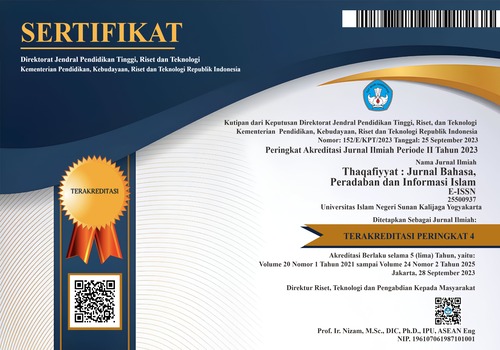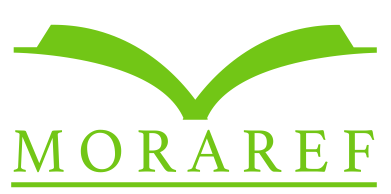FEMINISME DI DUNIA MUSLIM: MENGUAK AKAR PERDEBATAN ANTARA PAHAM KONSERVATIF DAN REFORMIS
Abstract
This is a historical analysis of Muslim viewpoint, particularly on what has
occurred in Egypt and Turkey, concerning the Reformists’ attempts to improve the status and role of women which have been socially and intellectually deprived for decades. It describes how Arab women, since the end of the nineteenth century, were beginning to struggle for greater freedom and wider opportunity to acquire knowledge in order that they would not lag behind the men. Such issues as freedom, veil (jilbâb) and
women’s changing attitude have resulted in pros and cons. Thus, this article tries to reveal the core of the debate between the Conservatives and the Modernists related to the issue of women’s freedom which is still going on to date. The questions to answer include: a) the early outgrowth of feminism in the Arab world, b) the colonial role in shaping people’s opinion, c) the actors behind the Reformist movement, d) the roles of Muhammad Abduh, Qâsim Amîn, dan Hudâ Sya’rawî, and e) the Conservatives’ grounds to preserve its tradition and to reject any renewal.
Keywords: feminism, conservative, reformist, tradition, reformation
Downloads
References
Downloads
Published
Issue
Section
License
Authors who will publish with this journal agree to the following terms:
- Thaqafiyyat: Jurnal Bahasa, Peradaban dan Informasi Islam publishes all articles entirely in full text.
- It is permissible for readers to download and to use it for scientific purposes and scientific dissemination.
- Authors retain copyright and grant the journal right of first publication with the work simultaneously licensed under a Creative Commons Attribution License that allows others to share the work with an acknowledgement of the work's authorship and initial publication in this journal.
- Authors are able to enter into separate, additional contractual arrangements for the non-exclusive distribution of the journal's published version of the work (e.g., post it to an institutional repository or publish it in a book), with an acknowledgement of its initial publication in this journal.
- Authors are permitted and encouraged to post their work online (e.g., in institutional repositories or on their website) prior to and during the submission process, as it can lead to productive exchanges, as well as earlier and greater citation of published work.










